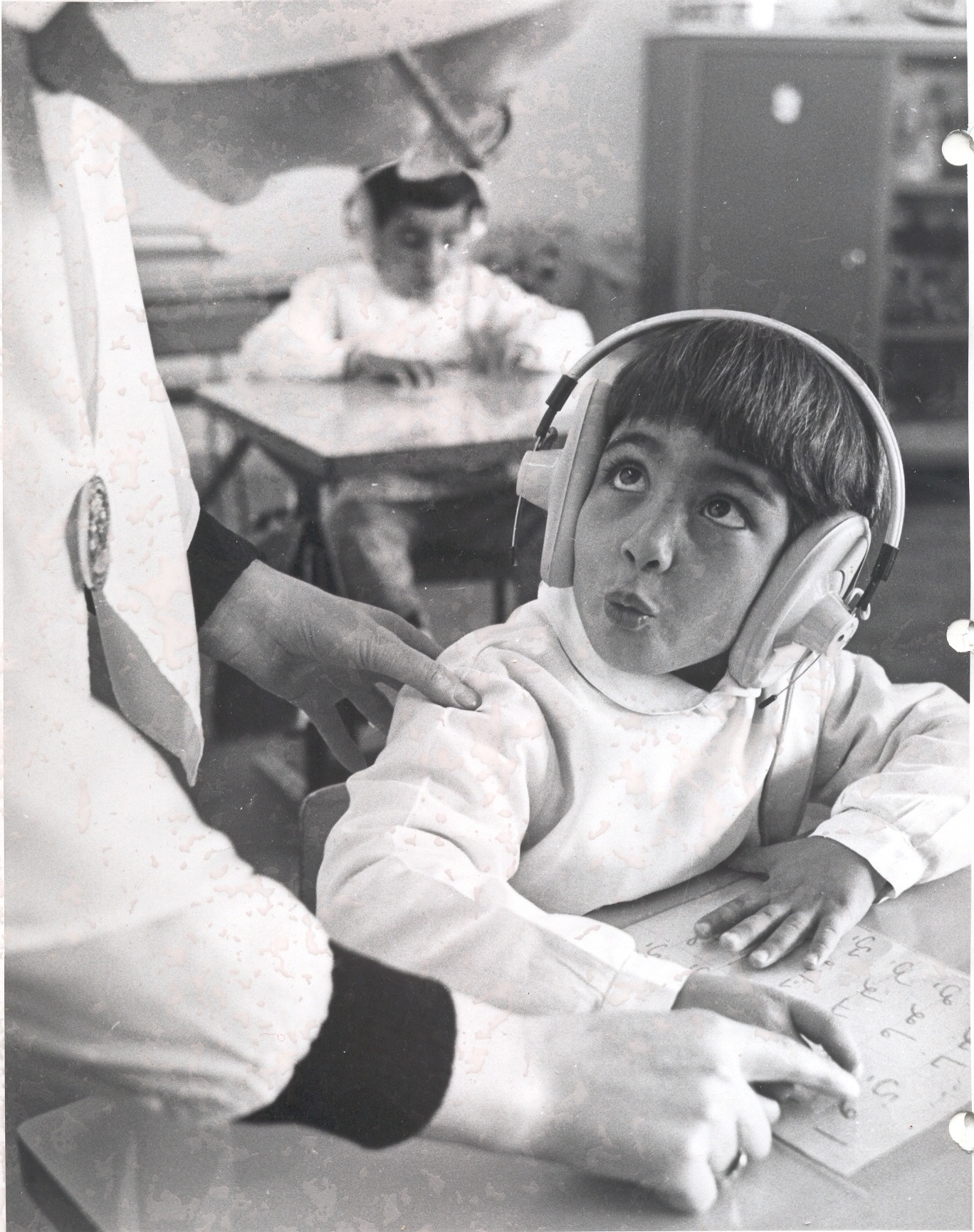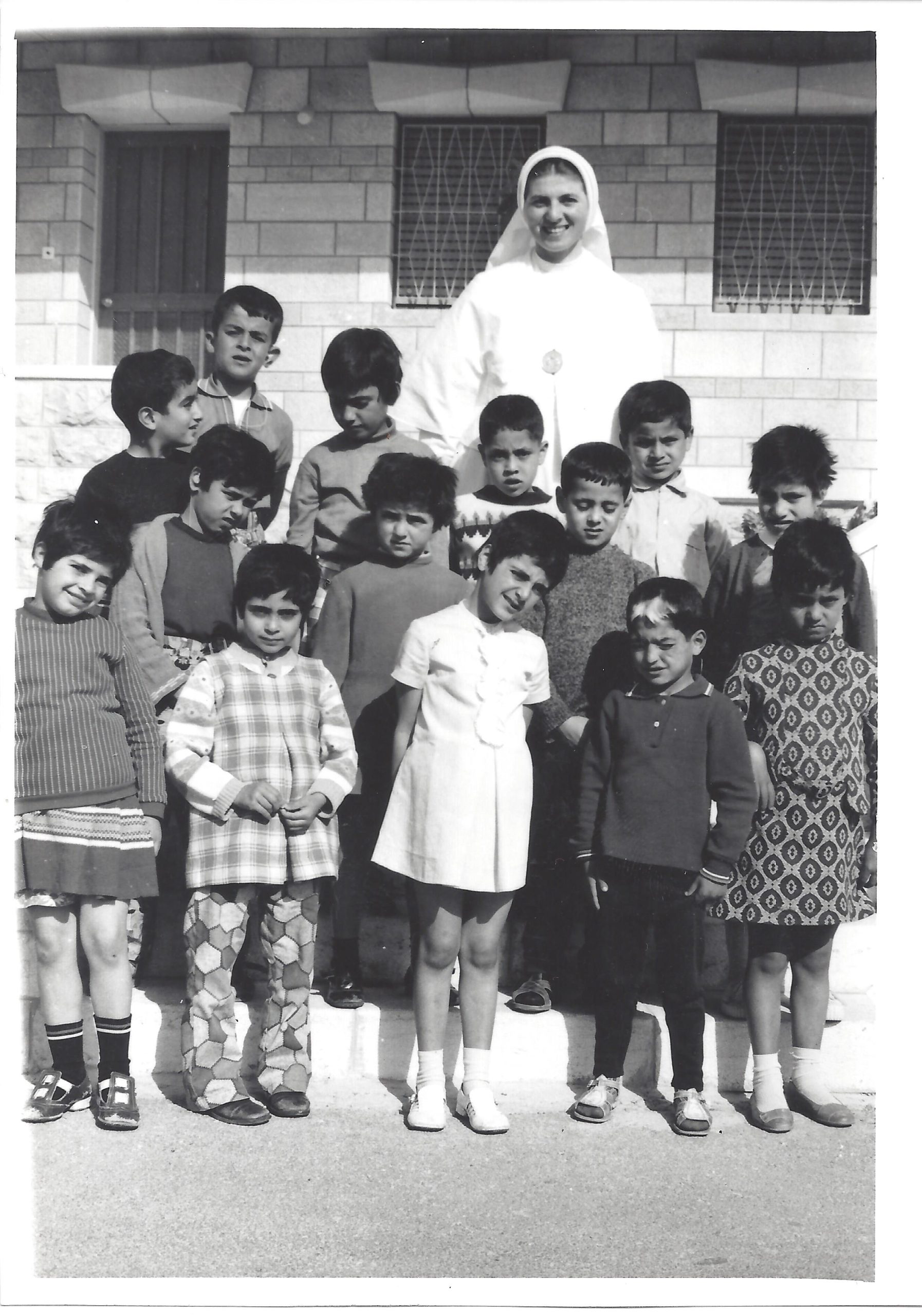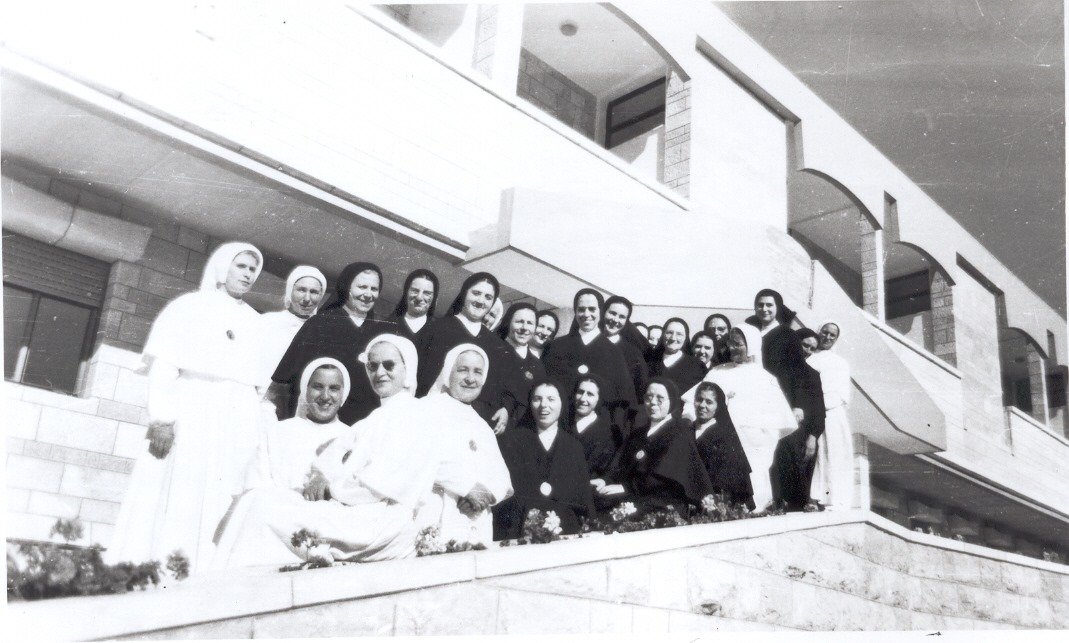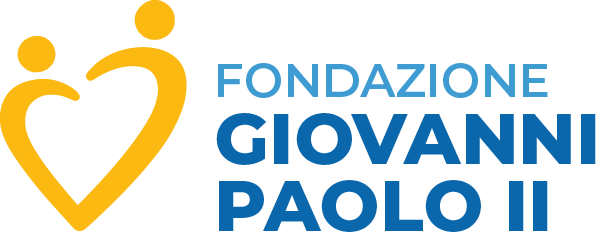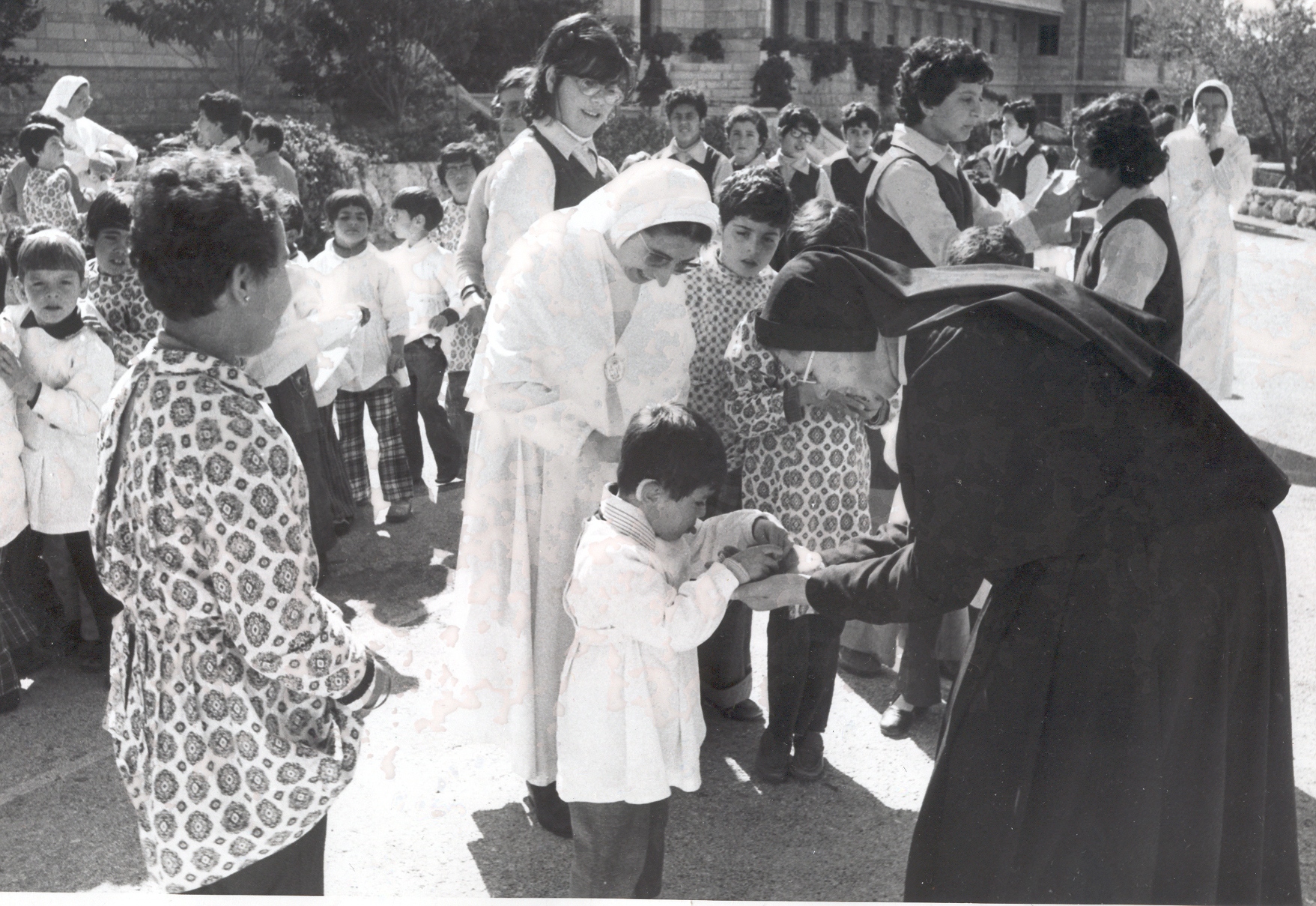
Effetà, un’oasi di cura e accoglienza per i bambini audiolesi della Palestina
di VOCI DAL MEDIO ORIENTE
L’Istituto “Effetà Paolo VI” di Betlemme, scuola specializzata per la rieducazione fonetica dei bambini audiolesi della Palestina, fu inaugurato il 30 giugno del 1971. La sua origine, però, affonda le radici in un momento storico, quello del viaggio in Terra Santa di san Paolo VI nel 1964. Un evento davvero indimenticabile, visto che si trattava del primo Papa a tornare laddove tutto per i cristiani era cominciato. Durante il viaggio, Paolo VI ebbe modo di constatare la presenza di un gran numero di bambini non udenti che non ricevevano adeguata assistenza ed espresse il desiderio che nascesse un’opera destinata alla loro riabilitazione. La costruzione dell’Istituto richiese sei anni fin quando, appunto dopo l’inaugurazione, esso potè aprire, affidato alle cure delle Suore Maestre di Santa Dorotea, Figlie dei Sacri Cuori di Vicenza, attive in Terra Santa fin dal 1927.
Il nome della scuola si rifà ad un passo del Vangelo secondo Marco (7, 32-37): “E gli condussero un sordomuto, pregandolo di imporgli la mano. E portandolo in disparte lontano dalla folla, gli pose le dita negli orecchi e con la saliva gli toccò la lingua; guardando quindi verso il cielo, emise un sospiro e disse: «Effatà» cioè: «Apriti!». E subito gli si aprirono gli orecchi, si sciolse il nodo della sua lingua e parlava correttamente”.
L’ormai cinquantennale avventura dell’Istituto Effetà prese concretamente il via il 6 settembre del 1971, quando ventiquattro bambini audiolesi iniziarono il programma riabilitativo audiofonetico con un curriculum scolastico che, secondo la normativa, prevedeva la conclusione alla sesta classe. Da allora le iniziative si sono moltiplicate. Qualche anno dopo, e fino al 1996, fu attivato un corso triennale di taglio e cucito. Nel 1997 ha avuto inizio un corso biennale per il conseguimento del diploma di segreteria attraverso lo studio dell’informatica e di alcune discipline complementari come la lingua araba, l’inglese e le scienze umane. Dal 2003, in base alla normativa sul prolungamento dell’obbligo scolastico ai 16 anni, l’Istituto ha avviato il Progetto M cioè il ciclo della Scuola media secondaria, raggiungendo la tappa della decima classe.
Oggi, in un’epoca di veloci cambiamenti culturali e tecnologici, tale curriculum risulta insufficiente sia dal punto di vista della rieducazione audiofonetica che di quello culturale, perché non completa la formazione di base valida per l’inserimento nel mondo del lavoro per la quale occorre la frequenza fino al dodicesimo anno e l’acquisizione del titolo di studio che giustifichi formalmente l’istruzione acquisita. La Scuola è quindi ora impegnata ad elevare la sua offerta formativa e culturale fino al raggiungimento di questo obiettivo.
L’Istituto Effetà accoglie ogni anno circa 150 bambini audiolesi di ogni religione costituendo di fatto, nell’esperienza quotidiana, un luogo di educazione alla convivenza e alla tolleranza reciproca. Gli alunni provengono da diverse zone della Palestina: Betlemme, Beit Jala, Beit Sahour e zone limitrofe, Ramallah, Hebron e villaggi vicini (10 chilometri da Betlemme), e Gerico (45 chilometri da Betlemme). Risultano esclusi i bambini della regione di Gerusalemme e del Nord per problemi di trasporto e di passaggio a causa del muro di sicurezza che separa Israele dalla Palestina, circondando e chiudendo quasi interamente la città di Betlemme. Tutti gli studenti rientrano quotidianamente in famiglia tranne una ventina di alunne che, a causa della distanza del luogo di residenza dalla scuola, vivono all’interno della struttura.
La maggior parte degli alunni è dotato di protesi acustiche retroauricolari che amplificano i segnali acustici e che, con una specifica rieducazione, aiutano a percepire suoni e rumori, a discriminare parole e semplici frasi in rapporto al grado della perdita uditiva. Un numero ristretto di scolari beneficia invece di un impianto cocleare. Questa neuroprotesi è indicata per i bambini che presentano una sordità profonda; l’impianto si sostituisce alla coclea, l’organo dell’udito, convertendo in segnali elettrici i suoni provenienti dall’ambiente e inviandoli direttamente al nervo acustico. Per i bambini che utilizzano questo ausilio è previsto un programma rieducativo apposito.
Notando, durante il viaggio del 1964, il gran numero di bambini audiolesi, papa Paolo VI mise in rilievo una triste caratteristica della società palestinese. Nel mondo un bambino su mille nasce totalmente o parzialmente audioleso, e la sordità parziale o completa è la menomazione sensoriale più diffusa tra gli uomini, arrivando a coinvolgere nell’arco della vita 1 persona su 10. In Palestina, purtroppo, il 3% della popolazione ha problemi di udito. In alcuni villaggi particolarmente isolati la percentuale sale al 15% degli abitanti, classificandosi tra le più alte al mondo. La diffusione della sordità nella nostra area è quasi completamente da imputarsi all’eredità genetica e non a traumi o a infezioni occorsi in età evolutiva. Nei Territori Palestinesi circa il 40% dei matrimoni è endogamico, combinato cioè all’interno della famiglia allargata o direttamente tra primi cugini, e ciò aumenta la probabilità che il deficit genetico si manifesti nei nascituri.
La sordità può essere accompagnata da numerose conseguenze sul piano psicologico e sociale dell’individuo. Un soggetto audioleso può incontrare difficoltà di apprendimento se non viene seguito nel processo di scolarizzazione, e può avere dei problemi di socializzazione se non è aiutato ad inserirsi nella comunità e nel mondo del lavoro. A tutto ciò va inoltre aggiunto l’insieme delle problematiche sociali, psicologiche ed economiche che la popolazione palestinese sta affrontando, soprattutto a partire dalla seconda Intifada del settembre 2000. In Palestina spesso i bambini audiolesi non possono usufruire di servizi di assistenza e d’aiuto. Ciò non è dovuto solamente all’insufficienza di strutture pubbliche o alle difficoltà di accesso ad esse, ma anche al fatto che la cultura locale manca ancora di informazione e di sensibilità rispetto a queste tematiche.
Attraverso proposte graduali e progressive, ogni alunno dell’Istituto Effetà è aiutato a relazionarsi con gli altri, a comunicare in modo adeguato e a inserirsi nella società. Il metodo utilizzato dai logopedisti, dagli insegnanti e dagli educatori di Effetà si definisce di tipo “orale”. Sin dai primi anni si cerca di insegnare terapeuticamente il linguaggio al bambino con un allenamento acustico, sfruttando i residui uditivi esistenti, una labio-lettura ed una imitazione dell’articolazione della parola stessa. Successivamente il bambino viene accompagnato nell’acquisizione di una competenza linguistica sempre più articolata, inclusa la capacità di comprendere la struttura grammaticale e sintattica della frase ed il suo significato.
Nell’Istituto “Effetà Paolo VI” sono attivi: un servizio ambulatoriale di intervento precoce, una scuola dell’infanzia, la scuola dell’obbligo, uno sportello di assistenza sociale, diversi laboratori individuali di logopedia e un Centro residenziale. L’Istituto, inoltre, organizza con regolarità incontri di formazione per i genitori. Responsabili dell’Istituto sono tuttora le Suore Dorotee, Figlie dei Sacri Cuori di Vicenza, coadiuvate finanziariamente dalla CNEWA (Associazione Cattolica di Assistenza per il Medio Oriente) che opera in loco tramite la P.M. (Pontifical Mission). L’equipe direttiva dell’Istituto “Effetà Paolo VI” è supportata da un’assistente sociale e da un consulente pedagogico e audiologico. L’intervento rieducativo e formativo è offerto da insegnanti, educatrici e logopediste sia laiche che religiose, locali e non.


